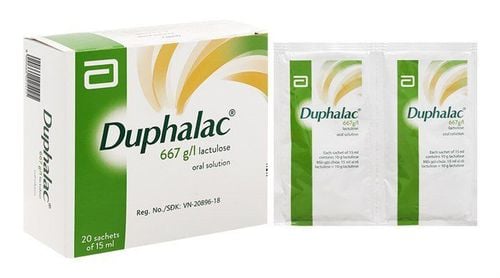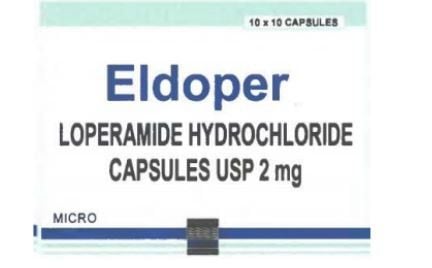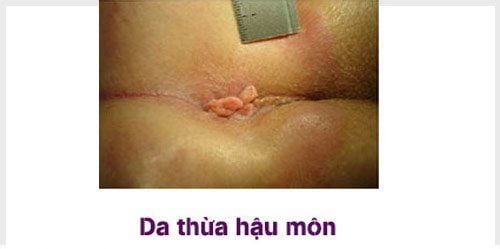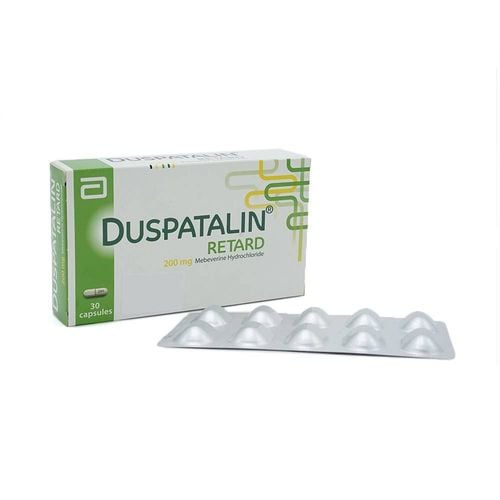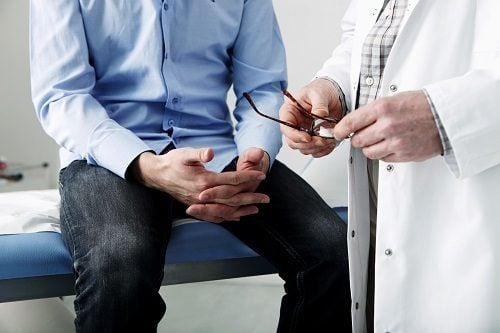What to eat with hemorrhoids is a question many patients are concerned about when experiencing this condition. The disease not only affects daily life but also causes digestive and food absorption problems, while creating conditions for dangerous complications. Therefore, understanding and building a reasonable nutritional regime can help more effectively treat the disease.
This article was consulted professionally with Doctor Dong Xuan Ha - Deputy Head of Examination and Internal Medicine Department - Vinmec International General Hospital Ha Long.
1. What fruits should hemorrhoid patients eat?
Doctors encourage people with hemorrhoids to increase consumption of fiber-rich foods, including both soluble and insoluble fiber. The reason is that fiber helps soften stool, increases digestive ability, thereby supporting the treatment process and preventing hemorrhoids.
Additionally, supplementing vitamin C can support the formation and maintenance of healthy blood vessels, which is very good for hemorrhoid patients. Moreover, vitamin E has anti-inflammatory effects, effectively healing damaged tissues and reducing hemorrhoid clusters.
Some fiber and vitamin-rich fruits people can reference to answer "what to eat with hemorrhoids" include:
- Apples contain abundant fiber, especially soluble fiber. During digestion, fiber forms a gel, softens stool and moves easily through the intestines, helping improve hemorrhoid symptoms and increasing the body's bowel movement capacity.
- Bananas top the list of fruits hemorrhoid patients should eat. With high pectin soluble fiber content, bananas help quickly reduce constipation and hemorrhoid symptoms. The soluble fiber in bananas forms a gel, softens stool and stimulates movement and elimination from the body. Additionally, the resistant starch in bananas is also beneficial for beneficial gut microorganisms.
- If you're uncertain about what to eat with hemorrhoids and which fruit to support hemorrhoid treatment, pears are a good option. Pears contain large amounts of fiber and beneficial compounds for hemorrhoid patients' health. On average, each pear provides about 6g of fiber, and pears contain fructose, which acts like a natural laxative, helping stimulate natural digestion and reduce uncomfortable hemorrhoid symptoms.
- In fact, papaya is also a very useful fruit in the treatment process and supporting hemorrhoid patients. Papaya contains large amounts of fiber, antioxidants, and compounds that act like natural laxatives. Patients should supplement papaya in their daily diet, including both ripe and green papaya, to enhance effectiveness during hemorrhoid treatment.
If you're uncertain about what to eat with hemorrhoids, papaya could be a good choice.
Besides fiber-rich foods, fruits in the citrus family, coconut, and avocado are also recommended by doctors to be added to the "what hemorrhoid patients should eat" list. Patients should supplement these fruits in their daily diet during the disease period to help improve their health condition.
Moreover, in daily portions, hemorrhoid patients need to pay attention to eating a variety of rich foods with high fiber content like beans, various nuts, green leafy vegetables, such as broccoli, cauliflower, sweet cabbage, kale, cabbage...
Simultaneously, patients also need to provide sufficient water for the body to help fiber work more effectively in the intestines, supporting the stool regulation process.
Besides knowing what to eat with hemorrhoids, patients also need to understand and reduce consumption of foods that can potentially worsen the condition, such as white bread, milk, and related products.
2. Besides fruits, what should hemorrhoid patients eat?
To answer many patients' questions about what to eat with hemorrhoids, doctors have suggested several food types including:
2.1 Omega-3 rich foods
Omega-3 has positive effects on mucous membrane layers and improves skin elasticity, which is good for hemorrhoids.
Hemorrhoid patients should supplement omega-3 containing foods like chia seeds, flaxseeds, tuna, and salmon in their daily diet.
2.2 Magnesium and Zinc
Magnesium and zinc are two micro-minerals that play important roles in stabilizing blood vessels, supporting the digestive system, suppressing the inflammation, and promoting muscle tissue development, thereby contributing to wound healing. Food sources rich in magnesium and zinc include butter, whole grains, nuts, seafood, and many other foods.
2.3 Collagen
Collagen is also an answer to "what to eat with hemorrhoids". Collagen deficiency in the anal canal's cushioning tissue loses elasticity, causing blood vessel and hemorrhoid suspension ligament dilation, increasing hemorrhoid risk. To minimize this condition, people should supplement collagen.
Collagen-rich food sources like salmon, tuna, pork skin, and egg whites should be integrated into daily diet. Additionally, collagen can also be supplemented through functional food products in pill or liquid form.
3. How should hemorrhoid patients eat and drink?
Hemorrhoids are a common issue, often due to stool characteristics and patient's defecation ability.
In reality, studies have confirmed that diet significantly affects health and determines each person's stool type. Meanwhile, hemorrhoids are often associated with stool characteristics.
For instance, if stool is not regularly expelled or defecation is difficult, this can cause anal or rectal vein swelling, a problem related to hemorrhoids.
When patients frequently experience diarrhea, it can also stimulate and cause rectal vein inflammation, thereby leading to hemorrhoids.
For those with hemorrhoids, abnormal stool can make discomfort or bleeding more serious.
To control or prevent hemorrhoids, patients should maintain a scientific diet, balance nutritional substances, understand what to eat and what not to eat to support symptom improvement. The diet includes consuming sufficient fiber to support digestion, maintain soft stool, and avoid foods unsuitable for the digestive system.
Vinmec International General Hospital is one of the most reputable hospitals in hemorrhoid treatment. Vinmec has successfully treated many severe and complex hemorrhoid cases. Therefore, if a scientific, healthy diet has been applied but hemorrhoid symptoms show no signs of improvement, patients should visit the hospital for consultation, examination, and treatment.
Please dial HOTLINE for more information or register for an appointment HERE. Download MyVinmec app to make appointments faster and to manage your bookings easily.





